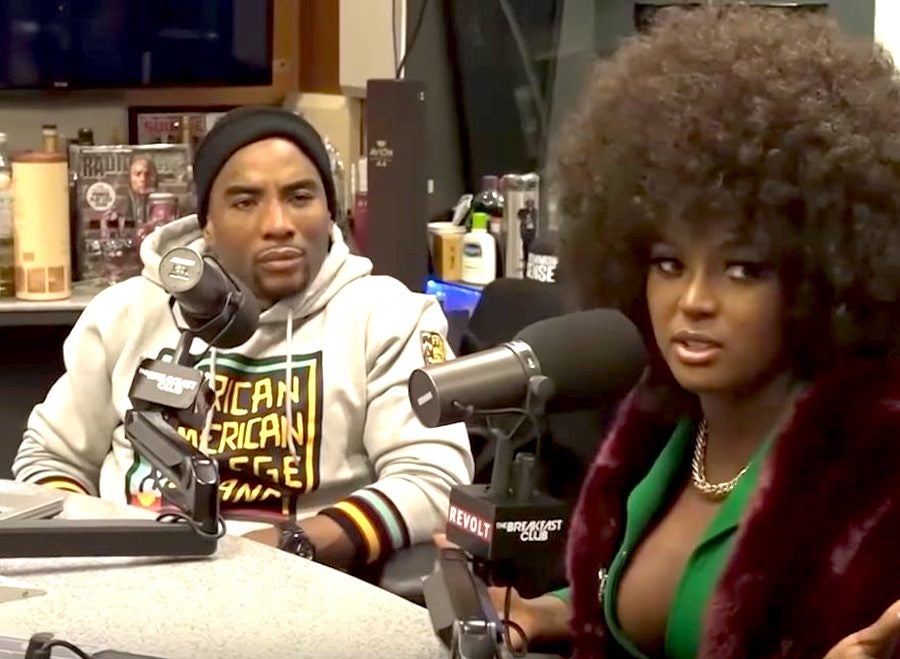
There’s probably nothing more frustrating for a disenfranchised person than explaining why they’re disenfranchised —like women having to explain the need for feminism or African Americans having to repeatedly say that their lives matter.
And explaining one’s struggle is even more frustrating when it has to be done to a Black man, who should know how it feels to be overlooked by society.
This was the case with Amara La Negra on the recent episode of The Breakfast Club.
Amara has created a lot of discussion around the Afro-Latin experience on Love & Hip Hop Miami. On the show, she’s dealing with a producer who believes her natural aesthetic isn’t palpable to the mainstream market.
“A lot of Dominicans have done blackface on me because don’t see anything wrong,” Amara told the hosts about systematic racism in the Latinx community.
“I went to do an audition for a Latin soap opera and they told me I had a special look. ‘Special look’ means you’re Black. I had somebody tell me, ‘honestly because you’re so cool, I’m gonna tell you the truth. If we have any roles like a prostitute or a gangster or maybe if we do a slave soap opera we’ll definitely have you in mind.'”
Adding, “We don’t have Black Lives Matter movement. We don’t have Dr. Martin Luther King. We don’t have Malcolm X. We don’t have the voice.”
As we previously reported, Amara has been in the industry since she was a child and her idol growing up with Celia Cruz, the most well-known Afro-Latina in music history. But despite millions of Africans brought to the Caribbean, Central America and South America they remain underrepresented in the mainstream.
A fact, that ‘Breakfast Club’ co-host Charlamagne tha God didn’t know or just refused to accept during the interview.
“You could always say you’re Latina with an afro,” he said. “I don’t know if it’s worth talking about… What is Cardi B? So how do you explain her? Cardi’s teeth were messed up, she came from the strip club, she’s so-called ratchet and ghetto as hell and now she’s America’s darling.”
Amara replied, “But we don’t look the same. The concept is not the same.”
To which he said, “So you think it’s the dark skin?”
“Of course, it is,” Amara replied.
“So how do you explain Issa Rae? How do you explain SZA? I’m confused.”
The conversation goes in circles as Charlamange and DJ Envy try to understand the concept of colorism and identity within the Latin community. The 27-year-old breaks it down in several ways, but the entire time we’re cringing at how uninformed the men are on the issue.
The fact remains: The majority of Africans outside of Africa are in Latinx countries. They come in a variety of shades, have different hair textures and eye colors and even speak differently. They aren’t a monolith and certainly face the same racism as African Americans.
The topic of colorism is not dying anytime soon. So it’d behoove Charlamagne, Envy and anyone else hearing about it for the first time to listen, sympathize and bring awareness to colorism for those sick and tired of doing so.